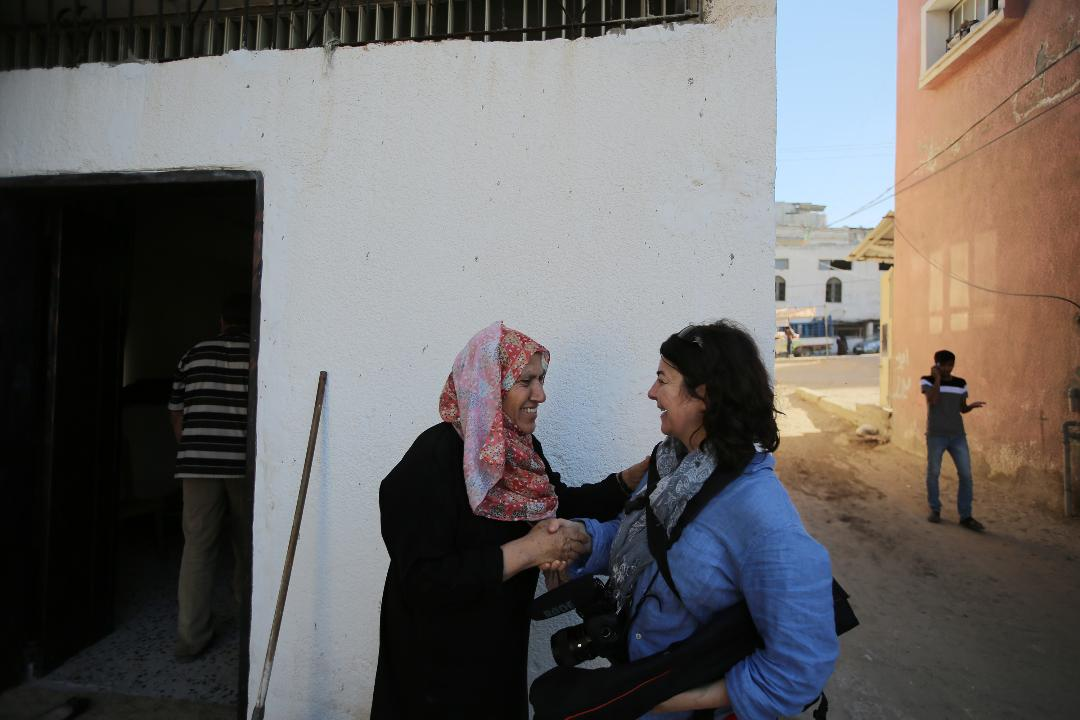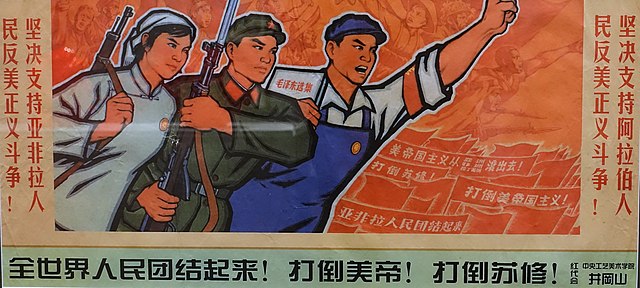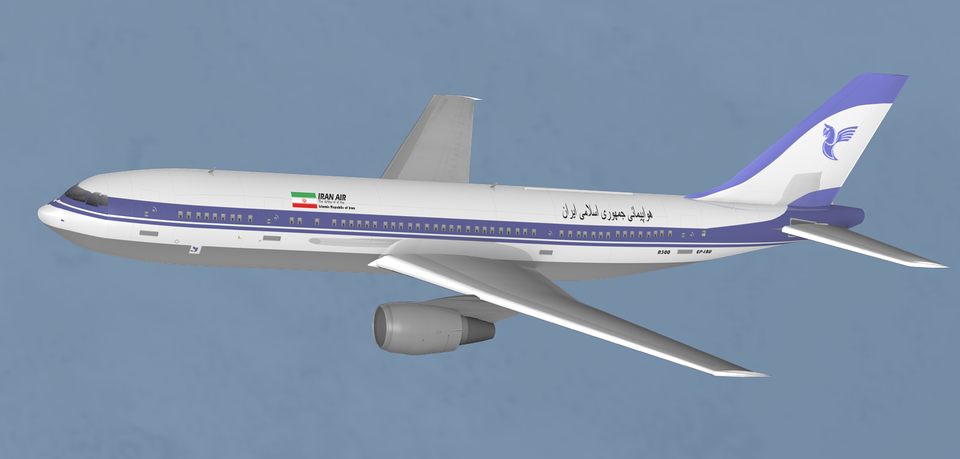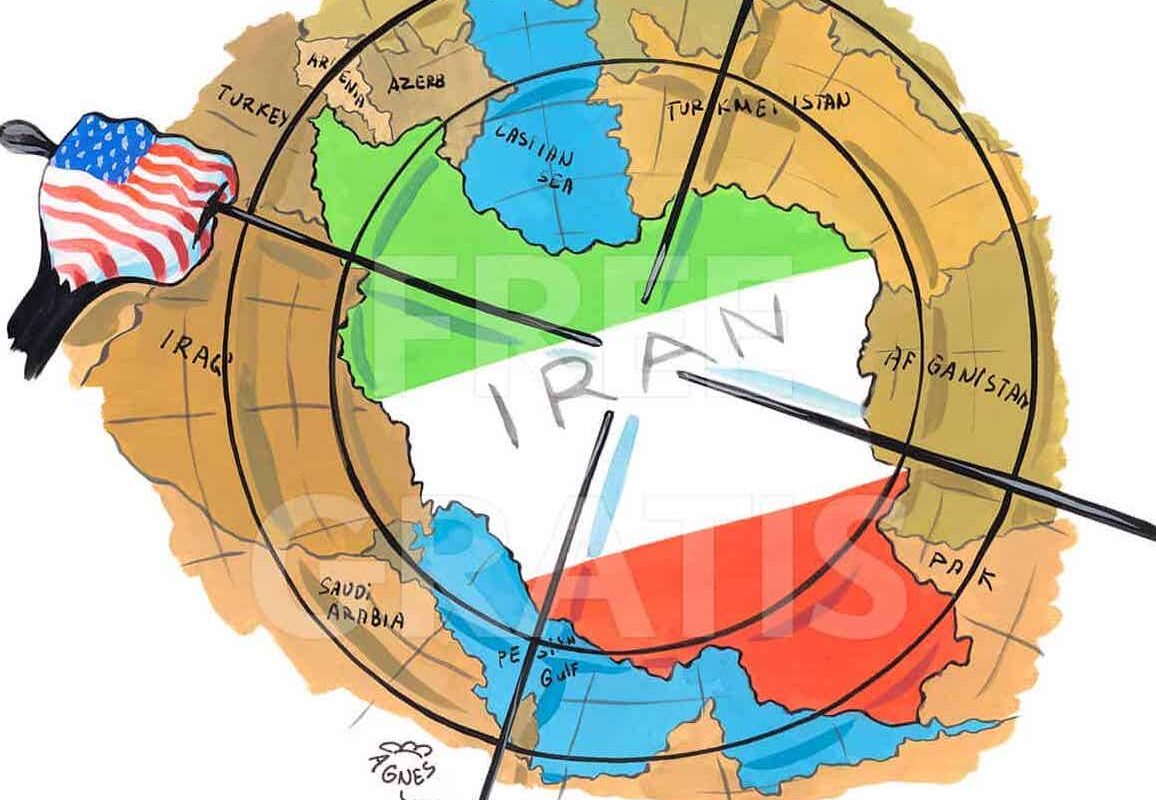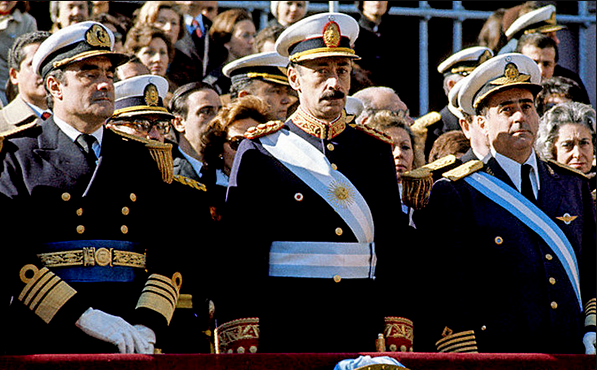Hello Anne. Thanks for agreeing to talk to us. Could you start by introducing yourself.
My name is Anne Paq. I’m a photographer and film maker. I am from France. I am now based in the Paris area, but I’ve been living in Palestine for many years and I am a member of the Active Stills photo collective.
Palestine has been one of the core issues I work with because I was living there, obviously. And also because I’m a photographer, engaged in social and political issues and I use my work to talk about issues I care about and to denounce some injustice I witness.
Your latest film is Not Just Your Picture about the Kilani family. For people who don’t know the film, who are the Kilanis?
The Kilani family is a Palestinian family from the Gaza Strip. Mostly they live in the Northern part of of the Gaza Strip in Beit Lahiya. This is a location quite close to the border, which makes it a bit dangerous regarding Israeli bombings.
The film is centred around the figure of Ibrahim Kilani, who as a young man decided to to go to Germany to study architecture. So Ibrahim went there and he met his wife, a German woman, and they had two kids, Ramsis and Layla. After the marriage broke down in Germany, Ibrahim went back to the Gaza Strip, divorced and remarried with a woman called Taghreed, and they had five children.
The film features both the family in the Gaza Strip and the Palestinian-German part of the family with Ramsis and Layla. And we follow them following the dreadful news of the killing of Ibrahim, Taghreed and their five children during the Israeli bombing of Gaza in the summer of 2014.
For the Kilani family, it’s also the story of a family torn apart because we can see the family trying to grieve in the Gaza Strip. One of their strong wishes is to be reunited with Ramsis and Layla – to see them – because for them, Ramsis and Layla carry a part of Ibrahim.
The family was also torn apart before, when Ibrahim was in the Gaza Strip and he couldn’t visit his kids Ramsis and Layla in Germany. For Ramsis and Layla, it was also impossible to go to the Gaza Strip because of the siege. So it’s a complex situation. But it’s also a reflection of almost any Palestinian family which is being torn apart because of the occupation and colonial project of Israel.
What was also striking for the Kilani family in the Gaza strip is how much they were welcoming to us and so open, even in difficult circumstances. Because of course they are still grieving and they are very much traumatised by what happened. And the situation in Gaza still is very difficult and they are struggling to make ends meet. To put it very simply, they are very, very nice and welcoming people and also very lively characters. As we can see in the in in the film. The same can be said about Ramsis and Layla who were so open to us.
How did you hear about the story and what made you want to make the film?
As a photographer, as a member of the Active Stills photo collective, I was in the Gaza Strip during the Israeli offensive of 2014. I was trying to document as much as I could see – what we can only call atrocities – committed by the Israeli bombings against civilians.
One day on 22nd of July I was with a fellow journalist. We stopped because there was a high building half-destroyed, and there were a lot of people at the bottom of the tower looking at bulldozers, basically digging to try to get out one body which was still inside the concrete. It was really a horrible scene. People told us that the bulldozer had been working for a long time. At that time, we only got small pieces of information about what happened.We only knew that there was a bombing, and that some family got killed. But this is only later that I found out that the name of the family that was killed was Kilani.
Soon after the offensive, I initiated a project called Obliterated Families, which looked at the families who were being wiped out by Israeli bombings, either entirely or partly. So I interviewed and I went to see a lot of survivors from those families to try to understand what happened, to try to understand their story.
I wanted to go back to the Kilani family because I documented the scene just after the bombings, but also because I heard that the Kilani family had a German passport. So I was very much also interested into finding more information. Why did the Palestinian family have a German passport? This is how I connected to the family in Beit Lahiya and I met one of Ibrahim’s brothers, Salah. He told me about the whole story, and why for instance Ibrahim left Beit Lahiya during the offensive to go to Gaza city. Also I found out that he has two kids in Germany- Ramsis and Layla – with whom I got in touch and then later I met them in Germany.
So why did I want to make the film? As I mentioned, the Kilani family was part of my multimedia project, Obliterated Families. This project was made by a lot of people. It was co-authored with Ala Qandil and was a huge project which took us two years to make.
We dedicated one chapter to the whole story of the Kilani family. And because it’s multimedia, we made a video, and this is how I met Ramsis Kilani in Germany. And when I met Ramsis, I really sensed that he had a lot of things to say, and he was very touching.
I was working on a video interview and it was edited by Dror Dayan who lived in Berlin and is very much involved in the Palestinian issue. So we discussed together. I was convinced that we could make something bigger out of this story than the chapter.
I did it first of all then because the characters were really touching, Ramsis and Layla, and also the family in Gaza that I met. I was also motivated because of the German passports part of the story because it exposed the European complicity in this situation.
This is why I made the film with Dror – to talk about the European complicity and its role into the continuation of Israeli impunity. And we believe that with this very personal and touching story, we could actually reach out to a wider audience than usual and talk to the people.
One of the primary targets, of course, is the German public, so we still hope it will be shown in a lot of German theatres.
As the film develops, we see both Ramsis and Layla gaining self-confidence. Initially they come across as quite shy. By the end of the film they’re addressing large rallies and international conferences. Did you notice this change in the course of making the film?
When I first met Ramsis in 2015, he came across as someone who has some political background, but as someone who was quite shy. It was the same with Layla – she was clearly less interested in politics than Ramsis. We definitely saw a change in the course of us making the film. I think this change is reflected in the film because it shows the reality of their self development.
When I think of Ramsis, the first time he made the interview and when I saw him in this event at the Brandenburger Tor, when he made a speech and said the names of his family members who were killed, he was a bit shy. Also because he was very moved by the situation. And then later we saw him back in Paris, talking in front of the big crowd and being very assertive. It was quite astonishing to witness his development. And now he’s a very vocal voice in Germany, not only for Palestinian rights, but also against racism and on different political issues. This is quite impressive to see that, and I really admire his dedication.
As for Layla, at the beginning she was very shy about talking in public, especially about her Palestinian identity or what happened to her family. And now she’s very proud and open about her Palestinian identity. The last time I saw her, it was in Berlin when we had the German premiere. And she was on stage together with Ramsis, and that was very moving for me to see and very important. She really expressed herself fully and in a powerful way, and it was great to see that. She’s also part of Palästina Spricht. So she has also taken a huge personal journey.
In the film, we see Ramsis unsuccessfully trying to sue the Israeli army and to win acknowledgement from the German government. Has he had any joy since?
Unfortunately, he is not getting any progress, and that’s led to frustration. But Ramsis has understood that there’s not much to expect from the legal system in Germany. He’s putting his full energy into the political side, on advocacy, on talking about Palestinian rights. I think this is his way to really engage himself for the time being.
Still, there is no move. The general prosecutor in Germany still has not officially opened the case, which is really crazy, as all the files have been available to him since 2014 December, and he has all the cards. At one stage, he was waiting for Israel to deal with the case, but now Israel has closed the case and dismissed the appeal. So we know that there will be no justice for the Kilani family when it comes to the Israeli courts.
It’s not a surprise, of course. There is nothing to wait for from the Israeli courts when it comes to justice for Palestinians. But the German prosecutor was arguing that he was waiting for this before he could make a move. I’m not sure how it will move forward. There is still the International Criminal Court who could deal with the case and maybe something will happen there, but how long it will take?
In the meantime, how do we cope with a denial of justice? I mean, for many years Ramsis and Layla have been waiting for some kind of acknowledgement from the German government and there is nothing. As we see in the film, there was this letter from a German representative in Ramallah, West Bank, but it was sent in a personal capacity, so it is not even official.
It’s really shameful. But it says a lot, unfortunately, about the position of Germany when it comes to to Palestine. And this is something that we all need to denounce, of course.
Do you still have contact with the Kilani family in Gaza? How are they coping with the latest wave of bombing?
I so wish that I could visit them, but it has not been possible. It’s very difficult now for international journalists to go. You need a special permission from the Israeli authorities. The Israeli press office is putting a lot of obstacles, especially to independent photographers or journalists like me. So really, I’m waiting.
I’m hoping to go to meet the family, to share the film with them of course, and to get some news. Because of the language barrier, I’m in contact with someone from the family, the son of Saleh, who is in Sweden and speaks fluent English. So I could get some news about the family from him. He’s a cousin of Ramsis and Layla.
And yes, of course, the latest bombing of Gaza was also horrible – 11 days of relentless bombing, civilians being killed. Of course I was concerned about the Kilani family. They had some bombings very close to the house. Actually the house next door had some children killed in it. So it was again very difficult.
This is a thing about the bombings in Gaza. People know it is going to happen again. So how are you supposed to overcome your trauma from the last round of bombings if you know this is going to happen again?
We really wish to see them. If the situation would be different, we would invite them to the screening in Europe. But because they are locked in this big prison called the Gaza Strip, it’s very hard to get them out. It’s almost impossible.
After the film was made, we had the sad news that Fatma – the mother of Ibrahim, the grandmother of Ramsis and Layla – had died. We can see her in the film, and it’s very sad to to think that she died without Ramsis and Layla being able to see her.
Has the search of justice for Ibrahim been affected by the large demonstrations for Gaza this Summer?
I think it’s interesting to see the latest round of bombings and what happened in Palestine, with a new wave of resistance and a display of unity. To see huge demonstrations is of course encouraging. It shows the Palestinian issue is not disappearing, and that the question of justice for Palestine is still prominent. It is important that we continue to have those demonstrations for justice and Palestinian liberation.
But this is not enough to push the governments to get to this point of having Israeli war criminals being tried internationally. So we need to push much more. And I’m already hoping that one day it would happen, and let’s hope for it.
I want to add to this question of justice, that as long as Israel enjoys total impunity for its crimes, it will continue. Why not? And if Israel has impunity, it’s because of the support of the international community. So a shift needs to happen. Or else it is just a matter of time before the next full on attack on the Gaza Strip with many, many civilians killed.
In that sense, the demonstrations are important and give a sense to the Palestinian families and the ones who suffered that some people see them and recognise them as victims and stand with them in solidarity. In that sense, the demonstrations do not help directly Ibrahim’s case , but maybe indirectly. At least the wrongdoings done by Israel are exposed by the people in the streets.
You are French, but sometimes work in Germany. Have you learned to understand the reluctance of large parts of the German Left to support Palestine and the Palestinians?
As a French citizen, when I went to Germany and I got involved in the Palestinian issue, I went to some demonstrations for Palestine. And when I found out that many Germans who claimed they are from the Left, oppose Palestinian rights, and that they blindly support Israel colonial project – it was a big shock to me.
I kind of knew about this, but really to experience this and to see it, I was very shocked actually. Because when it comes to France, for instance, for people who say that they are from the far Left, it’s pretty clear that you are anti-colonial, you support anti-colonial struggles, so therefore you support Palestinian rights to self-determination and freedom and you are for Palestinian liberation. No question about it.
it’s very strange in France if you say that you are from the far Left and say that you don’t support Palestine. So to come to Germany and to be exposed to this? It was very shocking. I could also sense a lot of Islamophobia in the group of people I encountered.
It was also pretty clear to me that only one twisted side of the story was being told. I can only see a total contradiction in saying you’re from the far left but you don’t support Palestine and you support the militaristic apartheid state of Israel.
I could feel also in Germany pressure on people not to speak out for Palestine. I think that a lot of people would support Palestinian rights, but they will not take a public stand because there would be a cost to it. But at one stage you need to make a stance for what is right. And I am really hoping that people will realise it and be more vocal for Palestinian rights in Germany.
It has been quite hard for me to understand because it makes no sense. But I think, as I mentioned, there is a lot of racism and Islamophobia at the bottom of this and those people need to be exposed for who they are.
How hard has it been to organise screenings of Not Just Your Picture? And how have audiences reacted?
The film was made by a very small team, and when it comes to organised screenings, it’s basically Dror and I. So we applied to many festivals. None of the German festivals took it, which is also very telling. This included festivals which focus on human rights.
We had some Palestinian film festivals who took it, which is nice. And yes, we are really counting on people who have seen the film and want to organise screenings to get in touch with us, because this is a way we can organise community-based screenings. If people know a theatre that would be willing to show the film, you can go to the theatre and ask and try to organise it with maybe a local groups. Palestinian Speaks is also willing to organize screenings through their local chapters and we are excited about that partnership.
Right now we have we had our German premiere, our French premiere, and we have a UK premiere soon. And more dates are being set up in France, in Luxembourg, in Germany. And yes, we are hoping that more people will be interested in showing the film.
People can contact us on on the website. As much as we can, the directors – Dror Dayan and I – or Ramsis Kilanis – would be willing to participate in a debate. Because the whole point of the film is to have a debate about Israeli impunity, and about the European states’ complicity in the situation. So we are hoping to have a lot of screenings and discussions.
You are also a member of the Active Stills photographers’ collective. Could you tell us a little about who Active Stills are and what they do?
I’ve been a member since 2006. The collective was formed in 2005, basically by a group of photographers who were going to demonstrations in Palestine and could not find a way of getting their photos to the mainstream media. The mainstream media were not interested in photos of the Palestinian popular resistance.
So the idea was to form a collective and to put the photos on the streets to reach out directly to the audience. And since then, of course, the Active Stills collective has developed annd is involved in covering many issues, mostly focussing on Palestine. And yes, we see photography as a tool to expose injustice.
We work together documenting many struggles that we care about – human rights, LGBTQ+ rights, animal rights, etc. Sometimes we have common projects. And I think also that one of the most important things is that the photos are widely used by activist groups, and also by the communities we document.
We still use street exhibitions from time to time, but our core work is to build our archives. If you go to the website now, we have more than 45,000 photos. So it’s a huge archive on struggles and human rights in Palestine/Israel.
Politically, we see the area between the Jordan River and the sea as one area. This is one important aspect of our work. Inside the collective we have Palestinian Israelis and international photographers. And we are all united in the political view that we are anti-Zionist as a group.
Do you have any future projects already planned?
To complete the film Not Just your Picture is just one part of the work and I really want to get involved in the tour. So as much as I can, I will try to go to screenings and have some debate with people about the film. This will also keep me busy for the next months.
Right now, I’ve been also documenting a local struggle in France about the Vertus workers’ gardens in Aubervilliers. This has been threatened by the building of a mega aquatic center for the Olympic Games of 2024. This has been a struggle that I’ve been following for one year – not to make a documentary, but to make a long-term photo project that is not over yet.
It deals with a destruction of nature and green space. It’s about gentrification, about projects which are done for profit and not for the well-being of people.
I’m more focussed now on French issues, but of course I am hoping to go back to Palestine soon and continue some of my documentation there.
I went back to France after many years abroad, as I’ve been interested in diving into the struggles there. The political situation is very tense and there have been many protests in France since I came back. I’m very happy to be more engaged with French issues. But even in this situation, it’s quite depressing.
How can people see Not Just Your Picture? Better still, how could they organise a screening?
People can get in touch with us to organise screenings. At some stage we will make it available for public online. But for the time being, we want to have those those screenings as this is also an opportunity to have public debates.
I believe this is an important film. This is a film with a very touching personal story. And I think it has a lot of potential to move people. So please get in touch with our website.
Finally, your film is essential viewing but the story that it tells is desperate and miserable. Do you have a message of hope for us?
Hope is always a challenge when dealing with Palestine, because we are dealing with so many horrific crimes being committed for so many years, for decades. The situation on the ground is not getting any better, if not worse. So sometimes yes – we may feel struck by despair. But we cannot. It’s a question of justice. It’s a question of solidarity. It’s important to stand out for what is right and for Palestinian liberation.
For me, the main hope at the moment is to have seen the new wave of resistance around what happened in Jerusalem through the struggle of Sheikh Jarrah neighborhood and after the bombings of Gaza. How much people rose up in Palestine, showing an unprecedented show of unity from the river to the sea and even beyond borders. This is new and this is very important. We need to highlight it and to amplify Palestinian voices which are very strong and are really giving us some hope.
For me, it was also very moving because when we did the screening in the Palestinian Film Festival in Paris – Ramsis was there. This is also exactly what he said and that we had some hope from this new wave of resistance. And this is the inspiration for me.
So yes, I’m hopeful of a new situation. It’s hard, but we can also see that some discourses are shifting. Some words such as apartheid, ethnic cleansing, crimes against humanity, etc. are actually getting into the mainstream media. Because it’s so obvious. And because of the work of many eloquent Palestinians who are working to expose issues.
The discourse is shifting, resistance is rising up, and we can have some hope. In the film the story is utterly heartbreaking but we have tried as much to show how the members of the Kilani react, to show their humanity, to show the grief but also their strength, the love between them, the way they transform their pain and put it out there in their strife for justice . This is something I hope people can take from the film. Because this is what I have taken from spending so much time with the family.
If you are interested in organising a screening of Not Just Your Picture, you can contact Anne at info@notjustyourpicture.com. You can find out more about the film here and read Phil Butland’s review here. Please also visit the Active Stills website.
This interview will appear in German in the next printed copy of marx21 magazine.
